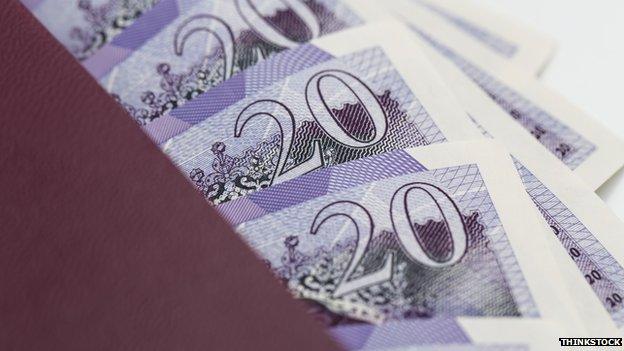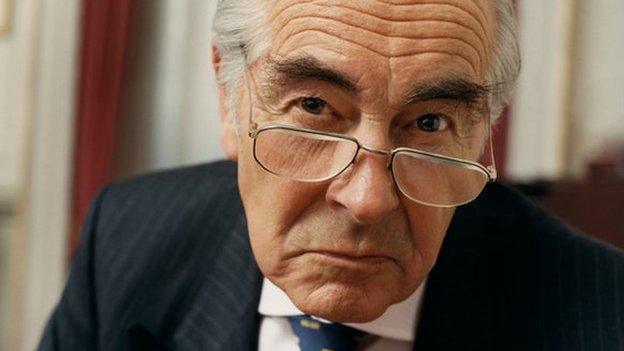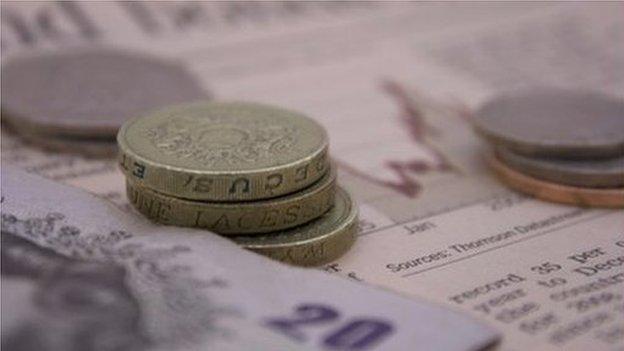Chief executives earn '183 times more than workers'
- Published
- comments

FTSE 100 chief executives (CEO) earn on average 183 times more than a full-time worker, research suggests.
A report, external by the High Pay Centre, a think tank which monitors income distribution, shows that top bosses earned on average £4.964m in 2014.
That compares to £27,195 median pay for a full-time employee in 2014, according to official figures.
The High Pay Centre said the executive pay packages went "far beyond what is sensible...to inspire top executives."
The pay gap did not increase dramatically between 2014 and 2013, when chief executives earned 182 times the average workers pay, but the High Pay Centre points out that it is much bigger than in 2010, when CEOs earned 160 times more.
"Pay packages of this size go far beyond what is sensible or necessary to reward and inspire top executives," said Deborah Hargreaves, director of the High Pay Centre.
"It's more likely that corporate governance structures in the UK are riddled with glaring weaknesses and conflicts of interest."
Since 2013 UK-listed companies have had to publish a single figure detailing their top executive's salary, as well as being required to give shareholders a binding vote on directors' pay.
Ms Hargreaves added that while the reforms had helped to get a better understanding of executive pay, they didn't go far enough.
She told the BBC's Today programme: "We've seen executive salaries pulling right away from the rest of society, creating this small elite of people that are just paid astronomically."
'Make or break'
The think tank would like companies to publish their own figures on the difference in pay between executives and their workers. It would also like a structure in which employees are represented in pay negotiations.
In response to the study, the TUC said that inequality had now reached "stratospheric levels" while the Unite union called for institutional investors to "use their clout to draw a line in the sand over CEO pay".
The business lobby group, the CBI said that high pay was only ever justified by "exceptional performance" and there must always be a clear link between the two.
"In FTSE 100 firms and beyond, it's important that boards and shareholders hold the highest earners to account," the CBI said in a statement.
"Shareholders now have a vote on companies' pay policies and it is important that this is used effectively."
But the free-market think tank, the Adam Smith Institute, was more forthright, saying that the right chief executive could make or break a company.
"CEO pay rewards extraordinary talent and skills in a highly competitive, globalised market," said its deputy director Sam Bowman.
"Good decision-making from the top might not be invaluable, but CEO pay reflects that it is as close to invaluable as one can get."
- Published31 March 2015

- Published13 October 2014
